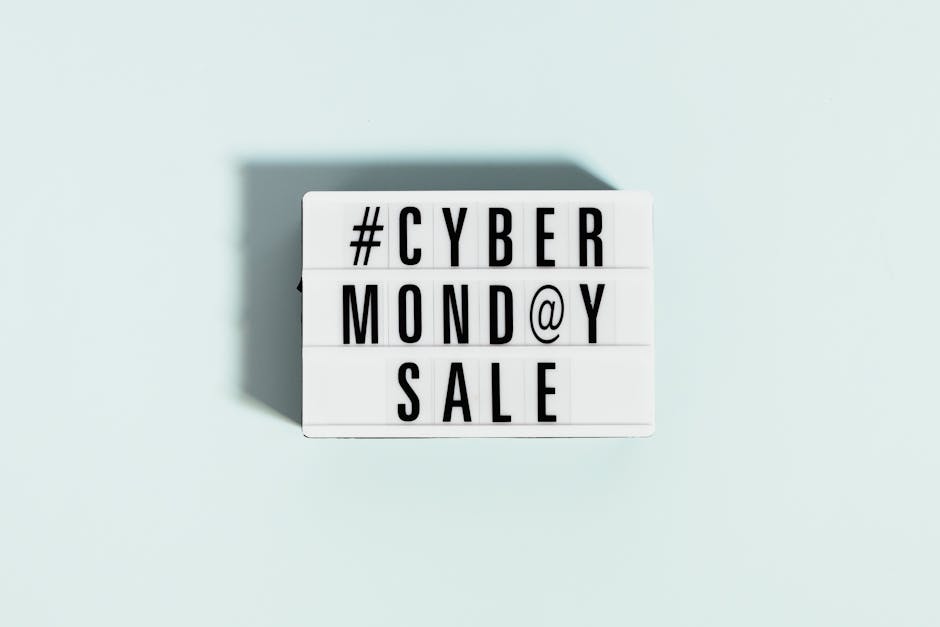Table of Contents
You know, I’ve been staring at screens for a solid two decades, seen more websites come and go than I can count. Most of ’em, well, they promise you the moon, don’t they? Or at least a decent discount. Then you poke around, and it’s just more fluff, more noise. Hard to get a straight answer out of anyone these days.
So, this whole Capital One Shopping thing. People ask me about it all the time. Is it any good? Does it actually do what it says on the tin? My short answer? Sometimes. Long answer? Well, pull up a chair. We’ve got a bit to chew on.
First off, let’s get this straight: nothing online is free. Your data, your attention, your browsing habits. That’s the real coin of the realm now, isn’t it? These companies, they’re not just giving away savings because they’re feeling generous. Nah. They’re in it for the long haul, collecting information on what you buy, when you buy it, and for how much. That’s the unspoken cost, always has been. What, you thought magic money trees just grew on the internet?
What’s the real deal with Capital One Shopping anyway?
It’s a browser extension, right? Sits there, lurking in the corner of your screen, waiting for you to hit up a shopping site. Then, poof, it supposedly finds you a better deal. Coupons. Price comparisons. Points for purchases. All sounds mighty convenient. And sometimes, it is. I’ve had it pop up with a decent coupon code that saved me ten percent on a new pair of shoes. Other times, it just sits there, silent, like a bump on a log. You go to a site, you expect it to sing you a little saving tune, and nothing. Just the same old prices. A bit of a gamble, that. I guess that’s how it is with most of these digital helpers. They’re not infallible, not by a long shot. Some folks swear by it, mind. Some reckon it’s a game changer. I’ve heard both.
Rakuten
Now, if we’re talking about cash back, you gotta look at Rakuten. Used to be Ebates, remember that? Good old Ebates. They’re a giant in this game. You click through their portal, you buy something, they send you a check or a PayPal deposit a few months later. Simple. No browser extension needed to clutter up your digital space, though they have one now too. My mum, bless her, she still gets excited when that Big Fat Check lands in her mailbox. She’s been using it for years, swears by it for holiday shopping. What I like about Rakuten is the straightforward nature of it. You see the percentage, you buy, you wait. Not much mystery there. Capital One Shopping, it sometimes feels like it’s got more layers, more bits and bobs to figure out. Points, rewards, coupons, all mashed together. Sometimes it’s nice to just have one thing, done well. You ever notice how much simpler things used to be? Just a price, you paid it, you were done. Now it’s a whole dance routine.
Does Capital One Shopping work with Amazon?
Oh, Amazon. The big kahuna. Everyone wants to know if these things play nice with Amazon. And yeah, Capital One Shopping generally works on Amazon. It’ll try to find you a better price from other sellers, or tell you if there’s a coupon floating around. But let’s be real, Amazon’s a beast unto itself. Most of the time, their prices are what they are. You might catch a lightning deal or a coupon from the seller, but don’t expect a secret twenty percent off code for that new flat-screen TV just because Capital One Shopping is sitting in your browser. It’s more likely to show you if that exact same TV is cheaper at Best Buy or Target. Which, fair enough, is still a saving. But the magic twenty percent off on Amazon? That’s a unicorn, most days. Dream big, but buy smart.
Honey (now PayPal Honey)
Then there’s Honey. Most folks know Honey, don’t they? Probably the first one I heard about, years back. It’s owned by PayPal now, which gives it a certain heft, a certain… legitimacy, I suppose. Honey’s thing is coupon codes. It just tries ’em all. Like a diligent little digital bee, trying every flower in the field. Sometimes it finds the nectar, sometimes it just buzzes around doing nothing. What I’ve found is, both Honey and Capital One Shopping will often pull up the same coupon codes. Because, surprise, surprise, a lot of these coupon codes are public anyway. They’re just saving you the hassle of Googling “promo code for [store name]” yourself. Which is fine, that’s a time saver. And time, my friend, that’s the one thing you can’t buy back, no matter how many coupons you stack. So, a little time saved here and there, it adds up. Or it should, anyway.
Is there a catch with Capital One Shopping rewards?
A catch? Always a catch, son. Always. They give you rewards, points, whatever they call it. And those points, they accumulate. Then you can redeem them for gift cards. Sounds good. But you gotta actually use them. And sometimes, the points are specific. Not always universal. Or there’s a minimum payout. Or it takes a while to vest. It’s not like instant cash in hand, that’s for sure. I’ve seen people get frustrated trying to track their rewards, or when a pending reward never clears. It happens. It’s part of the digital Wild West, I guess. Some of these smaller cash-back sites, they can be even worse about it. They’ll dangle the carrot, and then the carrot just disappears. Not saying Capital One is like that, not entirely. But it ain’t always as smooth as silk. Expect a few bumps, is what I’m saying.
Fetch Rewards
Speaking of those other apps, Fetch Rewards is a different animal. You scan your receipts. Yep, actual paper receipts. Or connect your digital accounts. And they give you points for buying certain brands. It’s not about finding coupons before you buy, it’s about getting something back after you’ve bought it. So, you grab your groceries, scan the receipt, and boom, points. My niece, she’s all over Fetch. Gets gift cards for Starbucks with it. Different kind of beast than Capital One Shopping, really. Capital One is more about the hunt before the purchase. Fetch is about the collection after. Both ways to skin a cat, or save a buck, depending on your perspective. Some prefer the thrill of the hunt. Others like the easy pickings.
It’s all about consumer behavior, isn’t it? These companies, they’re figuring out how to get you to spend, even when they’re trying to save you money. It’s a paradox, that. Like trying to get fit by eating more healthy donuts. Doesn’t quite compute, does it? But people fall for it every time. I do too, sometimes. We all want a good deal. We’re wired for it.
Is it worth installing Capital One Shopping?
Well, is anything “worth it” these days? What’s the downside? A bit of data tracking? Most sites are doing that anyway, aren’t they? If you’re already using other Capital One services, then it might be a no-brainer. Seamless, I suppose. It’s another tool in the toolbox, that’s how I look at it. Does it hurt? Probably not. Does it guarantee savings every single time? Absolutely not. My take? Give it a whirl. If it saves you a few quid on a purchase here and there, then great. If it just sits there doing nothing, well, you uninstall it. Not exactly brain surgery, is it? You gotta try these things for yourself. What works for your mate down the street might be a total waste of time for you. Personal preference, always. Some people like vanilla, some like triple chocolate fudge.
Ibotta
You want to talk about specific, how about Ibotta? More like Fetch, actually. Ibotta’s big on groceries. You link up your loyalty cards, or again, you scan your receipts. And they’ll give you specific cash back on specific items. Like, two dollars back on a box of Frosted Flakes, or fifty cents on a particular brand of toilet paper. It’s much more structured, much more about what you put in your shopping cart at the supermarket. It’s not about coupons at the checkout online. Capital One Shopping, that’s for the online spree. The quick hit, the immediate discount. Ibotta, that’s for the weekly grind, the grocery run. Different beasts. Both try to get a bit of money back in your pocket. Always a noble pursuit, that. Especially with the price of everything these days.
You know, the thing about all these digital assistants, all these saving schemes, they rely on you. They rely on you remembering to use them. To click the right button. To check before you buy. If you’re the kind of person who just clicks ‘buy now’ without a second thought, then Capital One Shopping, or Honey, or Rakuten, none of them are going to do you much good. You gotta put in a little effort. A tiny bit. That’s the unspoken agreement. They provide the possibility, you provide the follow-through. Miss that, and you might as well be paying full price. Which, to be fair, most people do anyway.
It’s the wild west of online deals. Some gold in those hills, sure. But there’s plenty of fool’s gold too. And more than a few snake oil salesmen, if you ask me. You learn to sift through the rubbish after a while. You get a nose for it. Twenty years of staring at these things, you start to see patterns. The big promises, the small print. Always the small print. That’s where the truth often hides.
Does Capital One Shopping track your browsing history?
Oh, come on. Of course it does. It has to, doesn’t it? How else is it going to know you’re on a shopping site, looking at trainers or a new washing machine? It needs to see what you’re up to so it can try to help you. Or so it can collect data about what’s popular, what prices are being offered, what people are actually buying. That’s how these things work. They’re not just sitting there, waiting for you to type in a magic word. They’re always watching, always collecting. Every click, every page view. It’s the cost of entry, isn’t it? Some people freak out about it. Others just shrug. It’s the world we live in now. Your privacy? What privacy? Gone are the days of just browsing a catalogue in peace. Everything’s tracked. Everything’s monitored. Makes you wonder sometimes, doesn’t it? What happens to all that information? Who gets to see it? They say it’s anonymized, but you never really know, do you? You got your own decisions to make there. How much is a discount worth to you, really? That’s the question.
Final thoughts? It’s another tool. Not a miracle worker. Not a scam. Just… a tool. You use it if it helps. If it doesn’t, you kick it to the curb. Simple as that. Don’t overthink it. Most things online, that’s the best way to approach ’em. Take what you need, leave the rest.












